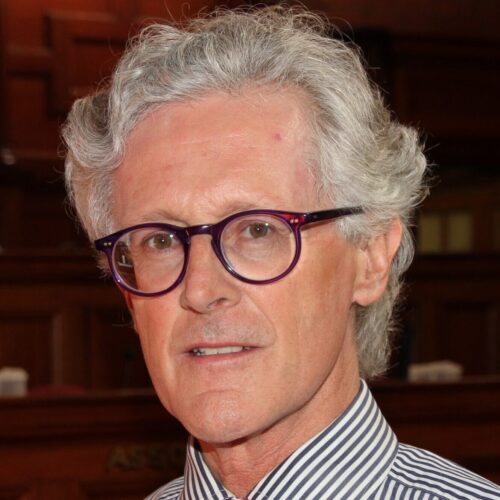- Summer 2022
- Reforming the Coroners Court: If not now, when?

Each year about 6500 deaths are reported to NSW coroners. They are reported because they are sudden, violent or unexplained. A multiplier effect for each death of about 10 means that about 60,000 people are left shocked, bewildered and smitten by grief for their loved ones.
Parliament inquiry reports in 2021 and April 2022 found that the coronial system – a multidisciplinary complex of coroners, medicos, family counsellors, investigators, lawyers and administrators - is failing the people of NSW and is desperately in need of root-and-branch reform. This was a once-in-a-generation chance to get this right. The NSW government’s response issued on 1 November 2022 failed to address this critical problem. Beyond what it has already been doing for the past two years, its response camouflages a lack of action and policy direction.
The system has several major flaws. It has a poorly designed structure in which country magistrates double as coroners. Its legislation is antiquated. It has inadequate resources – six fulltime coroners compared with nine in Queensland, 14 in Victoria and 18 in New Zealand. We have half the Australian average number of coronial court staff. Its backlog of inquests is massive and increasing. Because the Coroners Court has very limited in-house research capacity, coronial data, which could expose patterns of preventable death, are wasted. In July 2022, the Sydney Morning Herald's investigation of deaths in country hospitals also exposed significant flaws in coronial investigations of those deaths especially by country coroners.
NSW is the last jurisdiction in Australasia to use untrained, inexperienced, underresourced magistrates and public servants as coroners. Nearly half the deaths reported occur in rural and regional NSW. Health statistics show that premature and preventable death rates are higher in the country than in Sydney. Yet country magistrates conduct few inquests and make death preventive recommendations on average only three times per annum. They are expected to carry heavy criminal workloads and manage coronial cases. They can’t do both.
The Attorney General has consistently committed the NSW government to adequately resourcing the coronial system. That promise remains unfulfilled. A shiny new building was opened in Lidcombe in 2019 but otherwise the cupboard remains bare. NSW missed a wave of reform which saw antiquated, failing systems in Queensland, Britain, Ontario, New Zealand and Victoria completely reform their jurisdictions in the early parts of this century. Until recently, the Local Court has resisted calls for reform. This has now changed – an energetic, compassionate State Coroner and a progressive Chief Magistrate support reform. So does the legal profession and the many individuals and organisations which made submissions to the parliamentary inquiries.
Victoria has the best coronial system in the world – its system costs approximately $22m per annum to run. Productivity Commission data show that NSW is running its coronial system on the cheap by using the Local Court to process cases. In the country, it is largely done by court staff, not trained coroners. We spend roughly half the Australian average per case. High clearance rates are maintained by failing properly to investigate many preventable deaths. Mistakes are made frequently but the system is poorly co-ordinated. In truth, it is more a cottage industry than a system. But, for a relatively small investment – about an additional $5-10m per annum – NSW could also have world-class coronial services. Against public health and safety and justice budgets running in the billions of dollar, the cost of major reform in NSW would be miniscule.
Six things need to be done to build a modern coronial system for NSW: (i) define the philosophy and purposes of the coronial system in terms of respect and care for families and prevention of death; (ii) rewrite the Coroners Act; (iii) create a specialist coroners court to conduct all coronial inquiries and co-ordinate the multidisciplinary system; (iv) focus the system on prevention of death by developing in-house research capacity and connecting with other public health research institutions; (v) expand the resources and streamline the processes of the system to reduce delay; and (vi) minimise unnecessary extra trauma for family members by making inquest processes more restorative and less adversarial.
The philosopher Avishai Margalit has written 'a decent society is one whose institutions do not humiliate people'. But for some people that is their experience of the NSW coronial system. The measure of success or failure of a coronial system is how well it shows care and respect for the dead, their loved ones and others closely connected to them. At the worst times of their lives, that is the least they have a right to expect. It is time to create a system that meets those expectations. The government should reconsider its position and show respect for those families. BN
Hugh Dillon was a Deputy State Coroner 2008-2016. He is now an Adjunct Professor at UNSW Law School and a member of the Association’s Inquests and Inquiries committee. The views expressed are his own.

Hugh Dillon
Hugh Dillon was a NSW Deputy State Coroner (2008–16). He is now an adjunct professor at the UNSW Law School, a part-time deputy president of the Mental Health Review Tribunal and a member of Maurice Byers Chambers. He is also a member of the Bar Find A Barrister: https://find-a-barrister.nswbar.asn.au/profile/b10904
